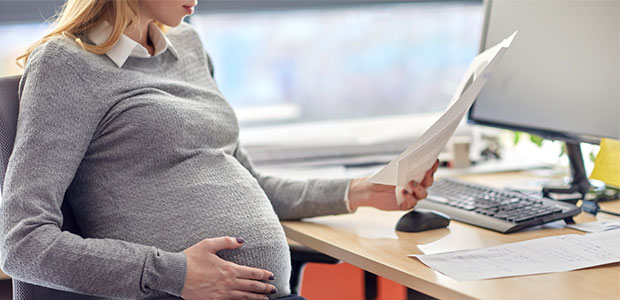
Pregnant Worker Accommodation Bill May Be on Its Way to the House
An update to the Pregnant Workers Fairness Act sponsored by a Democrat could make changes in how pregnant workers are accommodated in the workplace. It’s gaining much Democratic support, but many Republicans are still reluctant.
The fate of American pregnant women could soon change in the workplace if an adjustment to the pregnant worker bill goes through. Legislation sponsored by Democrat (D.N.Y.) Representative Jerry Nadler could require employers to provide more accommodations to pregnant women, if it gets enough support.
The Pregnant Workers Fairness Act (H.R. 2694) was the topic of discussion this Oct. 22 after Nadler reintroduced it back in May this year. The House Education and Labor subcommittee hearing discussed Nadler’s proposed changes—namely, his call for more specific, reasonable accommodations for pregnant employees in the workplace.
Nadler said after testifying that he believes there will be a markup on the bill soon. However, this fact is still up in the air given that no date has been scheduled in the Education and Labor Committee or the other panels with jurisdiction, including the Judiciary Committee that Nadler leads, according to one Bloomberg Law article.
The proposed legislation aims to address the U.S. Supreme Court ruling that the bill’s supporters say left ambiguities surrounding pregnant workers and their requests for accommodations on the job. As of Oct. 22, the bill is cosponsored by 119 Democrats and three Republicans.
The bill is expected by many to hit a dead end in the GOP-controlled Senate should the House pass it. Republicans against the legislation have pointed to existing laws, including the Pregnancy Discrimination Act and the Americans with Disabilities Act, as sufficient regulations for the protection of pregnant workers.
One Republican James Comer (R-Ky.) backed this idea: “Overzealous government intervention often causes more harm than good. While we are committed to preventing and combating unlawful discrimination, we should carefully examine legislation that could cause confusion and prove difficult to implement.”
However, supporters of the legislation say these existing federal laws are not enough. Democrats and advocacy groups, like the National Women’s Law Center, argue that the current laws leave many workers without job protections when they become pregnant and request certain accommodations to continue doing their jobs. Accommodations can include seating, water, frequent bathroom breaks, or lighter duty.
One specific employee’s testimony calls for action along these measures. Kimberlie Michelle Durham lost her job as an emergency medical technician after requesting pregnancy accommodations. She had asked for temporary reassignment because she was told by doctors not to lift more than 50 pounds, and her job required her to regularly life equipment and patients that weighed more than the limit, Durham said.
The lack of protection for pregnant workers is hurting the American workforce as a whole, but this is particularly a problem for low-paid women of color, said Rep. Suzanne Bonamici (D-Ore.), chairwoman of the subcommittee, in her opening statement. A federal benchmark is needed to fill the gap, even though 27 states, Washington D.C., and four cities do require employers with more than 15 employees to provide accommodations for pregnant workers on the job.
“Unfortunately, our current laws are inadequate, and many pregnant workers are placed on unpaid leave or forced out of work when they only need a simple accommodation to stay on the job during their pregnancy,” said Bonamici.
While there is lack of pregnancy protection laws, many also say that the existing ones use ambiguous and ineffective language. The new, proposed legislation would require employers to make reasonable accommodations, including minor job modifications, that would allow pregnant workers to continue working. It would also prohibit employers from denying job opportunities to women who may need accommodations related to pregnancy, childbirth, or related medical conditions.
Ambiguities left open by the U.S. Supreme Court in its 2015 decision in Young v. United Parcel Service, Inc. are the focus of the new legislation. In the 2015 decision, justices held that in that case that a pregnant worker can raise a pregnancy Discrimination Act claim by showing that her employer’s accommodations policy places a “significant burden” on pregnant employees and the employer lacks “sufficiently strong justification” for the policy.
However, since the Young case, about 70 percent have denied reasonable accommodations for pregnant workers, said Bonamici.
Another woman who testified at the hearing, Ellen McLaughlin, said some of the bill’s provisions are written so broadly that they could confuse employers about their obligations.
The proposal by Rep. Jerry Nadler might not be a complete fix to the issue at hand, and it may not make it all the way through the Senate. Nevertheless, pregnant workers are calling for action regarding their employment rights—and people are listening.